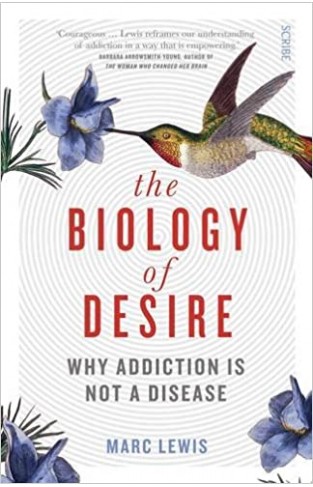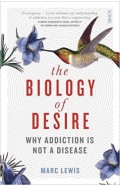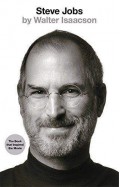- Home
- Books
- Categories
- Non Fiction
- Health and Fitness
- The Biology of Desire: why addiction is not a disease - Paperback
The Biology of Desire: why addiction is not a disease - Paperback
By: Marc Lewis
-
Rs 2,245.50
- Rs 2,495.00
- 10%
You save Rs 249.50.
Due to constant currency fluctuation, prices are subject to change with or without notice.
The psychiatric establishment and rehab industry in the Western world have branded addiction a brain disease, based on evidence that brains change with drug use. But in The Biology of Desire, cognitive neuroscientist and former addict Marc Lewis makes a convincing case that the disease model has become an obstacle to healing.
Lewis reveals addiction as an unintended consequence of the brain doing what it’s supposed to do – seek pleasure and relief – in a world that’s not cooperating. Brains are designed to restructure themselves with normal learning and development, but this process is accelerated in addiction when highly attractive rewards are pursued repeatedly. Lewis shows why treatment based on the disease model so often fails, and how treatment can be retooled to achieve lasting recovery, given the realities of brain plasticity. Combining intimate human stories with clearly rendered scientific explanation, The Biology of Desire is enlightening and optimistic reading for anyone who has wrestled with addiction either personally or professionally.
The psychiatric establishment and rehab industry in the Western world have branded addiction a brain disease, based on evidence that brains change with drug use. But in The Biology of Desire, cognitive neuroscientist and former addict Marc Lewis makes a convincing case that the disease model has become an obstacle to healing.
Lewis reveals addiction as an unintended consequence of the brain doing what it’s supposed to do – seek pleasure and relief – in a world that’s not cooperating. Brains are designed to restructure themselves with normal learning and development, but this process is accelerated in addiction when highly attractive rewards are pursued repeatedly. Lewis shows why treatment based on the disease model so often fails, and how treatment can be retooled to achieve lasting recovery, given the realities of brain plasticity. Combining intimate human stories with clearly rendered scientific explanation, The Biology of Desire is enlightening and optimistic reading for anyone who has wrestled with addiction either personally or professionally.
The Biology of Desire: why addiction is not a disease - Paperback
By: Marc Lewis
Rs 2,245.50 Rs 2,495.00 Ex Tax :Rs 2,245.50
Zubin Mehta: A Musical Journey (An Authorized Biography)
By: VOID - Bakhtiar K. Dadabhoy
Rs 472.50 Rs 1,050.00 Ex Tax :Rs 472.50
Steve Jobs : The Exclusive Biography
By: Walter Isaacson
Rs 2,785.50 Rs 3,095.00 Ex Tax :Rs 2,785.50
I Am Malala: The Girl Who Stood Up for Education and was Shot by the Taliban
By: Malala Yousafzai
Rs 2,245.50 Rs 2,495.00 Ex Tax :Rs 2,245.50
Written in History: Letters that Changed the World - Paperback
By: Simon Sebag Montefiore
Rs 672.75 Rs 1,495.00 Ex Tax :Rs 672.75
Myths Illusions and Peace: Finding a New Direction for America in the Middle East
By: Dennis Ross
Rs 985.50 Rs 1,095.00 Ex Tax :Rs 985.50
The Origins of Political Order From Prehuman Times to the French RevolutioN
By: Francis Fukuyama
Rs 3,505.50 Rs 3,895.00 Ex Tax :Rs 3,505.50
Manning Up: How the Rise of Women Has Turned Men into Boys
By: Kay Hymowitz
Rs 646.75 Rs 995.00 Ex Tax :Rs 646.75
The Obama Syndrome: Surrender At Home War Abroad
By: Tariq Ali
Rs 1,165.50 Rs 1,295.00 Ex Tax :Rs 1,165.50
The Quest For Meaning: Developing A Philosophy Of Pluralism
By: Tariq Ramadan
Rs 1,255.50 Rs 1,395.00 Ex Tax :Rs 1,255.50
Steve Jobs : The Exclusive Biography
By: Walter Isaacson
Rs 2,785.50 Rs 3,095.00 Ex Tax :Rs 2,785.50
I Am Malala: The Girl Who Stood Up for Education and was Shot by the Taliban
By: Malala Yousafzai
Rs 2,245.50 Rs 2,495.00 Ex Tax :Rs 2,245.50
Written in History: Letters that Changed the World - Paperback
By: Simon Sebag Montefiore
Rs 672.75 Rs 1,495.00 Ex Tax :Rs 672.75
No recently viewed books available at the moment.
Zubin Mehta: A Musical Journey (An Authorized Biography)
By: VOID - Bakhtiar K. Dadabhoy
Rs 472.50 Rs 1,050.00 Ex Tax :Rs 472.50
The Biology of Desire: why addiction is not a disease - Paperback
By: Marc Lewis
Rs 2,245.50 Rs 2,495.00 Ex Tax :Rs 2,245.50
Steve Jobs : The Exclusive Biography
By: Walter Isaacson
Rs 2,785.50 Rs 3,095.00 Ex Tax :Rs 2,785.50
I Am Malala: The Girl Who Stood Up for Education and was Shot by the Taliban
By: Malala Yousafzai
Rs 2,245.50 Rs 2,495.00 Ex Tax :Rs 2,245.50
Written in History: Letters that Changed the World - Paperback
By: Simon Sebag Montefiore
Rs 672.75 Rs 1,495.00 Ex Tax :Rs 672.75














-120x187.jpg?q6)










-120x187.jpg?q6)





